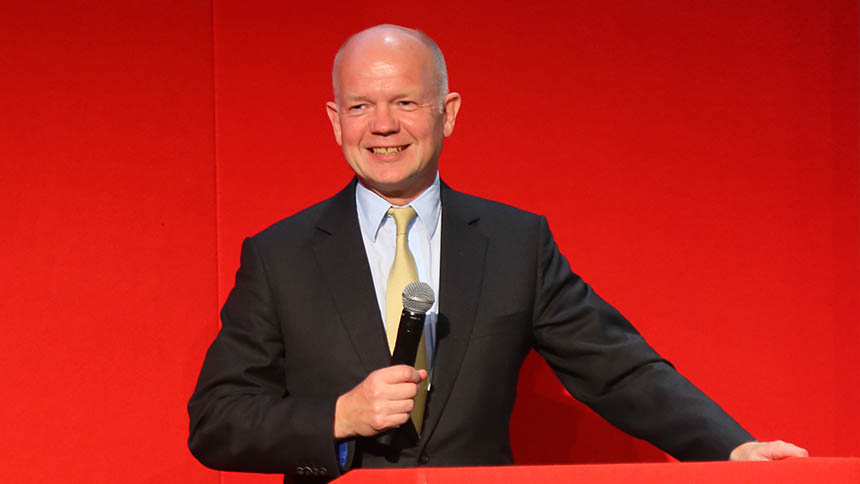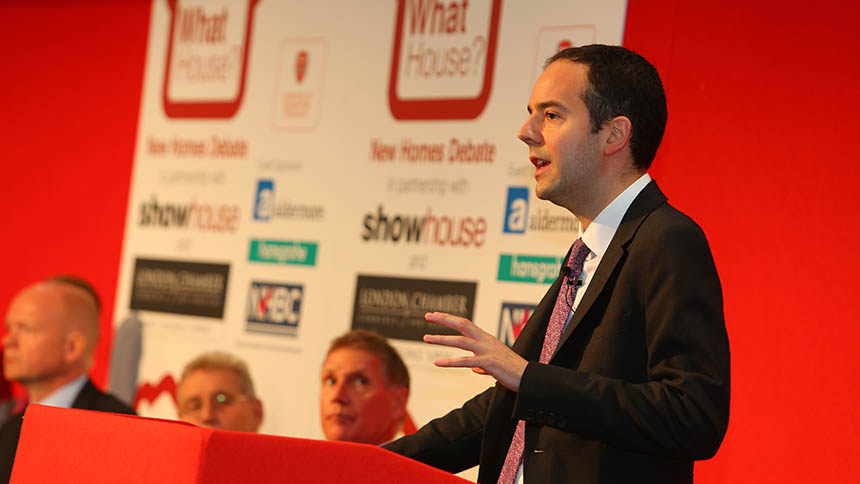Industry debate focuses on the present and future of new homes for London
Posted 22 September 2016 by
Keith OsborneThe latest WhatHouse? New Homes Debate – entitled Housing London 2020 and Beyond – drew an impressive array of panelists and a senior housebuilding industry audience to the Emirates Stadium this week, to discuss what needs to be done to meet the housing needs of the capital.
 Chaired by the former leader of the House of Commons, Lord (William) Hague, four panels tackled a series of issues covering how best to take the current situation in London and best plan to build the number and variety of new homes required to match the city’s future.
Chaired by the former leader of the House of Commons, Lord (William) Hague, four panels tackled a series of issues covering how best to take the current situation in London and best plan to build the number and variety of new homes required to match the city’s future.
Starting at ‘Where are we now?’, Richard Blakeway, former deputy mayor for London housing and now a housing advisor to 10 Downing Street, brought agreement that there was not a big enough variety of housebuilders involved in constructing the homes needed. Fellow panellist Colin Stanbridge, chief executive of the London Chamber of Commerce and Industry, suggested “we need an army of small housebuilders” to make the targets set, as “big developers are never going to build 50,000 houses”.
Mark Collins, chairman of residential at global agent CBRE, said planning difficulties would be eased with larger departments dealing with the issue, and that to do so, developers might be asked to pay higher fees.
The next panel of the New Homes Debate looked at ‘Finding the land, planning the homes and funding the builders’, with the leader of Islington Council, Richard Watts, berating planning permissions given that are not being acted upon and asking for a more detailed report on government-owned sites that might be handed over for new homes development.
Charles Haresnape, group managing director of lenders Aldermore, called for more clarity of government funding schemes and more inclination from lenders to pride funding for the smaller housebuilders Stannridge called for earlier. Kate Davies, the chief executive of Notting Hill Housing, declared that hers and other housing associations had huge sums available at favourable rates that housebuilder could have access to with joint venture projects.
On the next topic, ‘Transport and infrastructure’, senior figures from Transport for London (TfL) and Network Rail both expressed their intention to make the most of their land and projects undertaken, to incorporate housing.”Unequivocally, people who use our network wanted us to build more homes,” said TfL’s commercial director, Graeme Craig. Howard Dawber, managing director of strategy at Canary Wharf Group, added: “It’s clear that transport delivers an increase in property values, and it gives us the opportunities to deliver housing in areas where housing wouldn’t otherwise work.”
The final session, ‘Khan he deliver?’, looked at what new London mayor Sadiq Khan has to address in order to meet some of his early promises on the number and affordability of homes for London during his term. Tony Pidgley, chairman of Berkeley Homes, urged the industry to “get the place-making right”, looking harder at the affordability issue rather than return on investment. He also reported how a diminished level of quality tradesmen on his books had slowed his company’s rate of building, reinforcing others’ views that education and apprenticeship are not providing the quantity and quality of skilled workers into the construction industry.
 James Lidgate, director of housing at investment company Legal & General Capital, called for a major re-think on housing at a government level, with the “obsession” with homeownership replaced with more emphasis on other tenures to suit people at different times in their life. Leader of Barking and Dagenham Council Darren Rodwell agreed, saying “London wasn’t built on homeownership: it was built on the rental sector” and stating that it was impossible for him to buy in his own borough.
James Lidgate, director of housing at investment company Legal & General Capital, called for a major re-think on housing at a government level, with the “obsession” with homeownership replaced with more emphasis on other tenures to suit people at different times in their life. Leader of Barking and Dagenham Council Darren Rodwell agreed, saying “London wasn’t built on homeownership: it was built on the rental sector” and stating that it was impossible for him to buy in his own borough.
Among the last remarks was a word of warning from Michael Scobbie of Hangrohe, a major supplier to the UK housebuilding industry, who asked: “Is there a recognition that we need to maintain and enhance standards in the industry?”, stating “we are concerned that quality might be compromised in the rush to build more homes”.
The very final words came from James Murray, current deputy mayor for housing and residential development in the London mayoralty. He acknowledged the scale of the housing crisis and said that in his visits to all London’s boroughs on the issue, that there was a lot of consensus. He told the audience of his intent to speed up the provision of suitable sites for regeneration; to take a more innovative approach to funding to suit individual projects; and to bring “clarity, certainty and speed” to planning.
Mayor Sadiq Khan himself is currently chairing a “skills and capacity audit” across all related sectors in the council to determine the best way to tackle all the issues over the coming years.